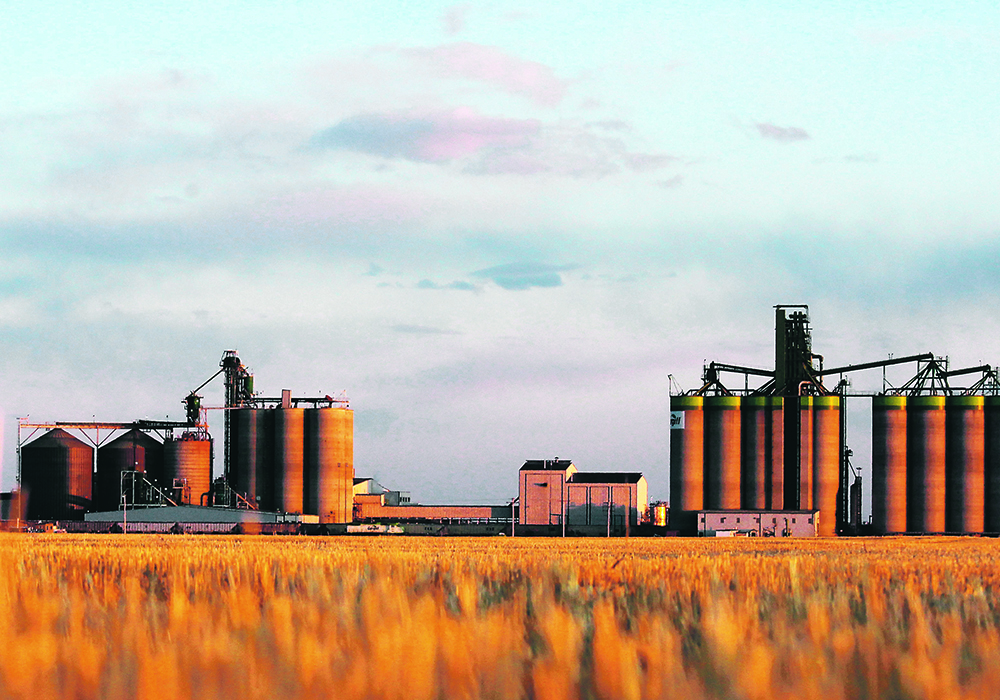Speakers at recent webinar say governments must do more to put agriculture at the centre of a national growth strategy
A former deputy prime minister says Canada should regain its place as a global agricultural superpower.
Anne McLellan, former Edmonton MP who served in the governments of Jean Chretien and Paul Martin, said during a webinar held by the Canadian Agri-Food Policy Institute that the recent budget is based on Dominic Barton’s 2016 report that identified agriculture as a growth engine for the country’s economy.
McLellan said Barton, who is now the Canadian ambassador to China, prescribed more value-added processing, enhanced productivity and strong trade agreements.
Read Also

Farming Smarter receives financial boost from Alberta government for potato research
Farming Smarter near Lethbridge got a boost to its research equipment, thanks to the Alberta government’s increase in funding for research associations.
“That is the frame of much of this budget,” McLellan said. “If you break down the component parts … they may not always mention agriculture but if you put the budget and the agricultural sector in that frame, (you can) see a lot that can drive economic growth in the agricultural sector.”
Sean Speer, former senior economic adviser to former prime minister Stephen Harper and current assistant professor in public policy at the University of Toronto’s Munk School of Global Affairs and Public Policy, said the government can’t ignore agriculture the way previous governments have.
“Regrettably, too often governments… have for a host of reasons not tended to place agriculture at the centre of a national growth strategy,” Speer said.
The sector plays a role in moving Canada out of what he calls the “two percent trap.” The economy has been growing at less than two percent for the last 20 years and he said if that is to change there has to be more emphasis on the sectors that can compete globally.
“There are no other parts of the economy where Canada plays such a significant role in global market share,” he said of agriculture and agri-food. “For all of the attention we pay to autos and aerospace and so on, these sectors are a fraction of global market share compared to some agricultural commodities like canola.”
Speer said McLellan’s comment that Canada should be an agricultural superpower is the message that policy makers and the public should be getting.
Instead, he noted that both prime minister Justin Trudeau and opposition leader Erin O’Toole delivered recent Agriculture Day statements that were anything but dynamic.
“There was this sort of almost pastoral element in the way they talked about this sector as opposed to talking about it the way it ought to be talked about, which is the source of innovation and productivity and growth and dynamism that is just an enormous endowment for this country.”
McLellan said she doesn’t understand why provinces like Alberta let go of agriculture as an economic engine.
“Now finally we’re starting to realize that it is a fundamental and key part of our future,” she said.
A thorough regulatory review of the regulations in agriculture and processing should be done to make sure they encourage value-added. Using Maple Leaf Foods as an example, she said the private sector is able to dominate globally if it has the right trade rules and regulations.
“We have to stop making excuses about why we’re not doing these things and get out there and do them,” McLellan said.
Some provinces have established agencies, such as Invest Ontario, that appear to be forward-looking rather than reactive, added Speer.
“Other competing jurisdictions, particularly American states, have been much more proactive in trying to secure capital investment, trying to secure product mandates, R and D mandates and these sorts of things,” he said.
Canada has to match that ambition and build the policy frameworks that attract companies to set up here.
“The first step is to recognize that we’re in a competition,” Speer said. “The onus now is on Ottawa to co-ordinate with those provinces so that when these opportunities arise we can be quick, nimble and ultimately persuasive.”
Speer also said it’s perplexing that Canadian governments of all political stripes haven’t seen what agriculture can do for the economy.
“I don’t know if it’s because the sector is geographically distant from Ottawa or if it’s just been stuck in a perception of being kind of a traditional sector and that policy makers haven’t properly followed the kind of extraordinary explosion of progress,” he said.


















